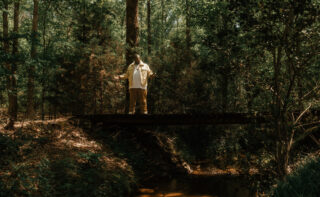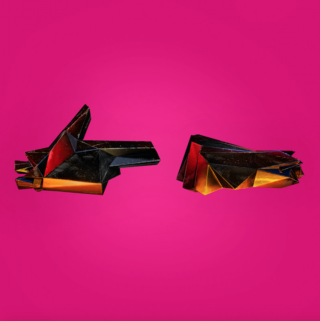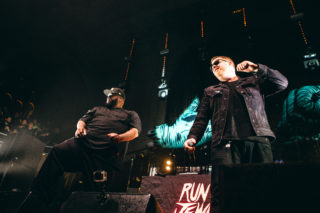All of this is in Michael. All of these people and moments and lessons. Denise’s sacrifice and Betty’s strength (‘Motherless’), Mr Murray’s lessons in taking care of your coin (‘N Rich’), Atlanta’s importance in a tempting tide of fame and adoration (‘Don’t Let The Devil’), the dealer who feels empathy for his customers and no small amount of guilt for what he’s doing to them (‘Something For Junkies’). Sir Fresh even gets a shout out on ‘N Rich’, and Mike’s ’72 Cutlass on the nearly dreamy ‘Spaceship Views’, featuring 2 Chainz. Other Atlantans rep the city with guest spots too: Andre 3000, Young Thug, Future, CeeLo Green – plus Ty Dolla $ign, Curren$y, 6LACK, and of course El-P.
This is Killer Mike’s 48-year life laid bare over 14 soulful tracks that take a different approach to connection than repeatedly smacking you in the mouth. “I want people to understand that Michael is an experience,” says Mike. “I want people to listen to it, but I hope it strikes you as a movie. I hope you see the characters. Interestingly enough, that’s what Jay-Z said. I sent him the album much earlier – he said, ‘I felt just like I went to my cousin’s house.’” He pauses a second to pull up a text on his phone, then turns the screen towards me while we both read it back. From Jay-Z, sure enough, it reads: “I really enjoyed the album! Felt like I was at my cousin’s house watching a movie. I love the album title!”
Coincidentally, the first time I heard Michael it reminded me of The Black Album – in its cinematic scope as much as its biographical reflections. It even starts with a grand narration, not from Jay-Z’s mother, of course, but from Rico Wade, the Atlanta production legend who co-founded The Dungeon Family collective that Mike came up in, whose members include Outkast, Future, Cool Breeze, Goodie Mob and Wade’s Organized Noize production partners – the team that built hip hop in Atlanta. The track, ‘Down By Law’, is the movie in microcosm, and squeezes into it a ton of blink-and-you’ll-miss-em names and references that are about to be expanded upon through the remainder of the album: drug dealing, its guilt and the victims it creates; the rejection of materialism; the celebration of Black excellence, academics and activists; God; mothers; Atlanta; personal growth and specifically what it means to be man. The Dungeon Family box is ticked a second time by a closing verse from CeeLo Green, which catches up with a recurring B3 Hammond organ that gives the whole of Michael an undeniable Southern gospel feel. “The new Killer Mike show is going to be more like what it was like growing up in church with my grandmother, going to these revivals,” says Mike. “I would like for MTV Unplugged or something – that’s the experience I want for this time.”
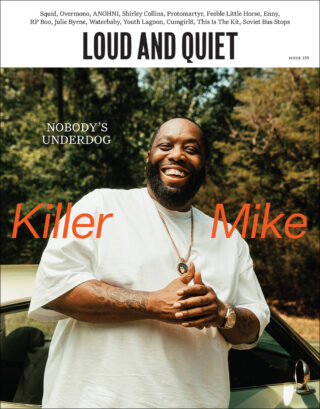 Mike connects his phone to the giant speakers in the corners of the room and pushes ‘Down By Law’ through them. As he raps along, pausing the track every few bars to explain them to me, it’s hard to tell who out of the two of us is enjoying the moment more. But it must be me. There’s an obvious question that hangs in the air, though – 11 years after his last solo album, why now for Michael? Or why ever? I don’t mean because Run The Jewels is flying, or because Killer Mike has made a name for himself as the rapper you can count on to shout in a cop’s face, but because all of this is so… personal.
Mike connects his phone to the giant speakers in the corners of the room and pushes ‘Down By Law’ through them. As he raps along, pausing the track every few bars to explain them to me, it’s hard to tell who out of the two of us is enjoying the moment more. But it must be me. There’s an obvious question that hangs in the air, though – 11 years after his last solo album, why now for Michael? Or why ever? I don’t mean because Run The Jewels is flying, or because Killer Mike has made a name for himself as the rapper you can count on to shout in a cop’s face, but because all of this is so… personal.
“When am I going to write my great novel if not now?” says Mike, before taking a long pause and then continuing slowly and quietly. “I can get tired of being used by these Black bourgeoisie pundits as an example for their whipping post candidate because they side with their masters, or whatever it is,” he says; something he addresses on new track ‘Talkin Dat Shit’. “And part of me is like, ‘You need to know the n*gga you’re dealing with’. I went to a bourgeoisie Black college [Morehouse], just like you. I could have finished and can go back any time I want, just like you. I come from a working class, salt-of-the-earth background, like many of you did. Let me make clear who the fuck I am before I get outta here. I am a proud Southern man. And I don’t care whether you’re white or Black, being a proud man comes with some thorns in those roses, and I’m going to make sure my story gets told right, because it’s not just my story, it’s a man’s story. It is a boy’s story. It is a young man’s story who gets a girl pregnant in his senior year of high school.” Mike’s voice cracks and tears begin to fill his eyes. “It is a father’s story, wanting to make sure his youngest son who suffers from a kidney disease gets a little life that his mother didn’t because she was robbed of the opportunity. It’s a story of Aniyah’s dad. So when I mention her name, or Mikey’s name, and say that their attitudes come from their grandmother, it’s real, it’s tangible.
“Y’know, all my children’s mothers were here in this building at the same time,” he says, as a line of tears now sprint down his cheek. “One called me who I’ve not always had a good relationship with. She called me and said, ‘I wanna thank you. I felt honoured and like a star.’ She didn’t understand that I was just a kid. I didn’t know any better. I was chasing a dream through drugs. I didn’t know how to treat her, that her soul and spirit needed care. And now I know and I’m capable of loving you. I had to learn. And these are the things that I needed to get out before I die. I don’t want somebody who don’t know me preaching my eulogy. Don’t bring no preacher here, just play my album.”
He leans back in his chair and dries his eyes and cheeks with a paper towel. “Oh man, sorry for letting that go on you like that,” he says, smiling broadly.
“It’s a record that humanises men, and humanises me,” he adds. “Because R.A.P. Music is still the superhero Killer Mike. This time this is it for real. This is not a contrived character that makes the liberals comfortable; this is not a contrived character that makes people who feel you’re beneath them feel you’re somehow keeping it real. This is my naked soul.
“This is an experience that I don’t think anyone has heard on a record before. Because I’m nobody’s underdog.”




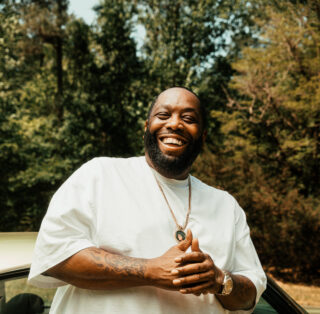
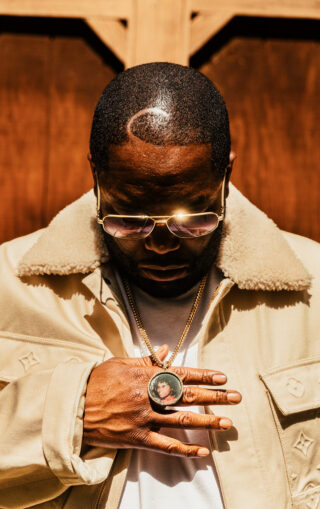
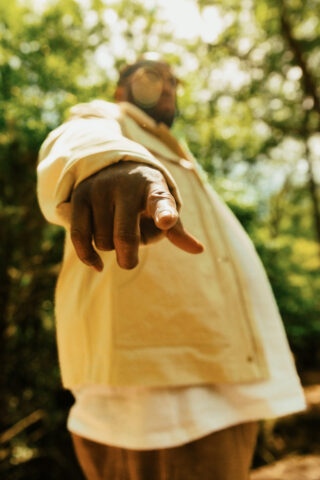
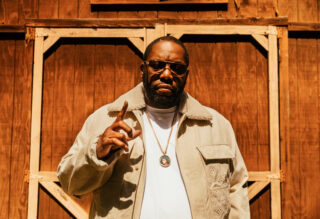
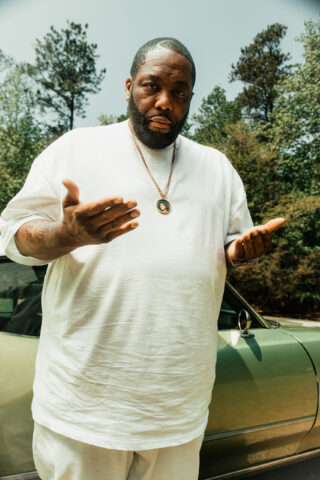
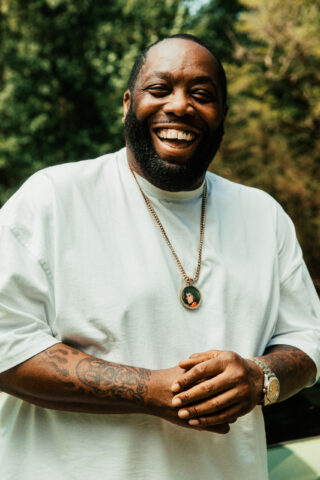


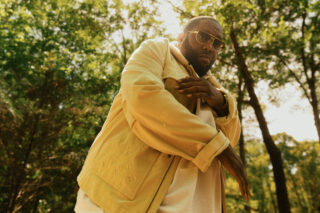
 Mike connects his phone to the giant speakers in the corners of the room and pushes ‘Down By Law’ through them. As he raps along, pausing the track every few bars to explain them to me, it’s hard to tell who out of the two of us is enjoying the moment more. But it must be me. There’s an obvious question that hangs in the air, though – 11 years after his last solo album, why now for Michael? Or why ever? I don’t mean because Run The Jewels is flying, or because Killer Mike has made a name for himself as the rapper you can count on to shout in a cop’s face, but because all of this is so… personal.
Mike connects his phone to the giant speakers in the corners of the room and pushes ‘Down By Law’ through them. As he raps along, pausing the track every few bars to explain them to me, it’s hard to tell who out of the two of us is enjoying the moment more. But it must be me. There’s an obvious question that hangs in the air, though – 11 years after his last solo album, why now for Michael? Or why ever? I don’t mean because Run The Jewels is flying, or because Killer Mike has made a name for himself as the rapper you can count on to shout in a cop’s face, but because all of this is so… personal.